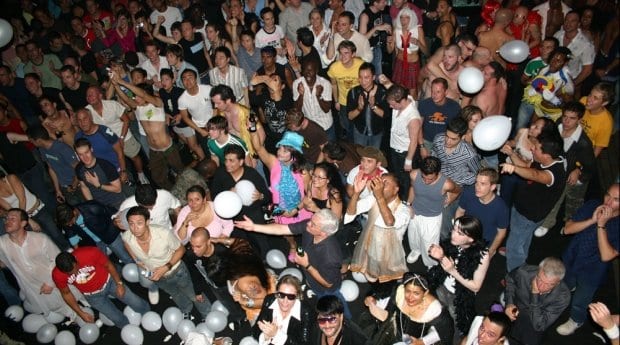In a move that shouldn’t really be a surprise but will no doubt come as a relief to anxious club kids, one of the founders of Fly Nightclub, which closed not quite three weeks ago to make way for a condo, has announced that the club will be reopening in the same venue under the name Fly 2.0.
Clubbers can expect the same beats and parties that made Fly a core institution of the Village scene for the past 15 years, owner Shawn Riker says. Many of the staff are returning to the new club, which will operate only on Saturdays at first.
Riker stresses that closing the club after WorldPride wasn’t a stunt: the club had come to the end of its lease, and the landlord was demanding too much rent for it to be viable. The previous owners walked away. But after lengthy negotiations with the landlord, Riker says, he got the rent down to a manageable level. He’s now the sole owner of the club.
“It would be such a shame if a city with a population of six million people did not have an LGBT nightclub where people could experience a supportive community, amazing venue and awesome vibe,” Riker says in letter to past Fly supporters. “After seeing what Church Street is like on a Saturday night without Fly, I know Toronto is going to suffer without it.”
Fly’s demise had been a source of concern in the community, as it was the last major dance club in the Church-Wellesley Village, following a decade that saw the closures of Five, It, The Barn, Alibi and Vice and the upcoming closure of Zipperz. Dance venues have generally had a rough go in the city, as development pressures have squeezed them out of the Entertainment District as well.
Riker says he didn’t consider relocating the club because there simply aren’t any appropriate venues left in the city.
“There are no other locations. This place has 23-foot ceilings,” Riker says. “We’re going to do some renovations and clean up what should have been maintained over the last little while.”
Riker says part of the problem is the city bylaw that forbids new dance clubs outside the Entertainment District, generally south of Queen Street, which makes it very difficult to find appropriate venues. Combined with the enormous rents that landlords are able to charge because of development pressures, the nightclub business in Toronto has become very difficult.
Riker says he has signed a long-term lease for the Gloucester Street space, although it still gives the owner the option to convert to condos in the future. However, Riker says that any conversion plan is far enough in the future that it makes sense to continue operating the club.
“If you’re going to build a condominium, you’re going to have to put up a sales centre for a year and a half. By the time everything sells, you get your financing, it’s a long time. They may never build a condominium,” he says.
While there are no immediate plans to reopen the restaurant and martini bar that fronted Fly, Riker says a new restaurant will reopen in the space eventually.


 Why you can trust Xtra
Why you can trust Xtra


